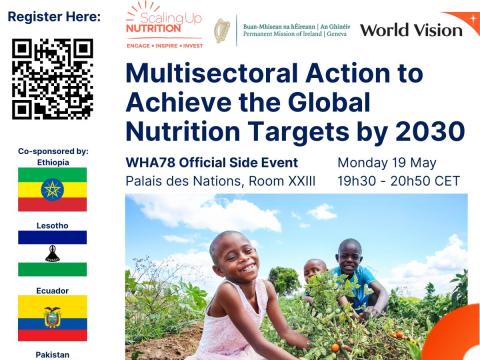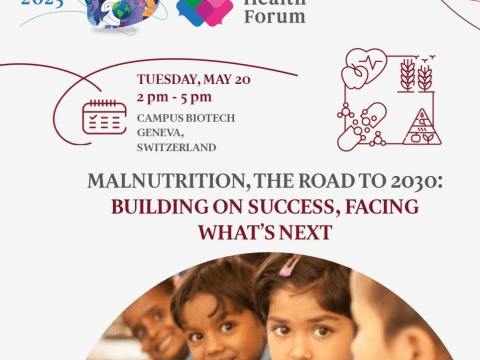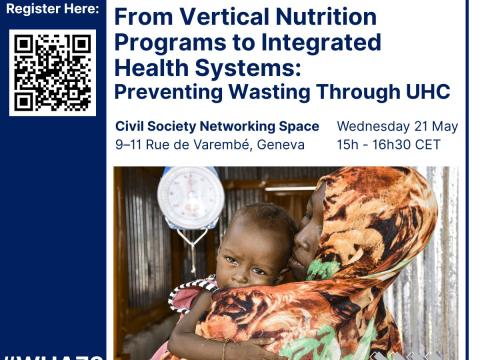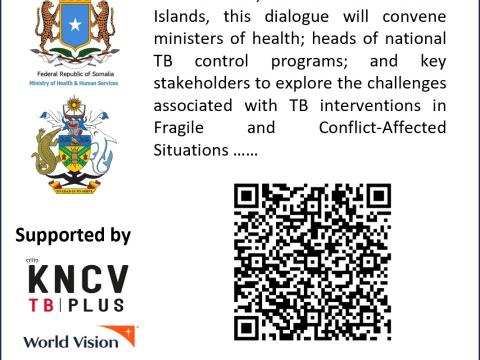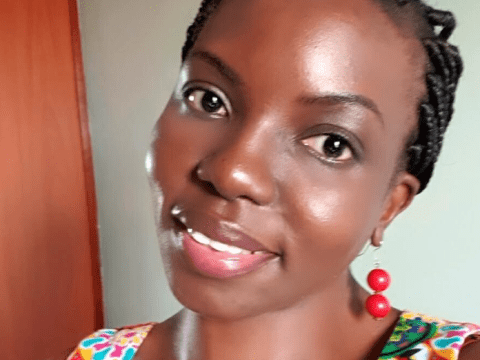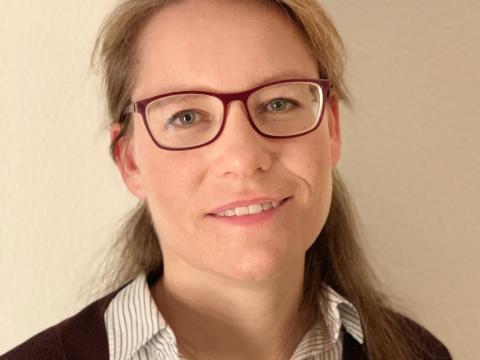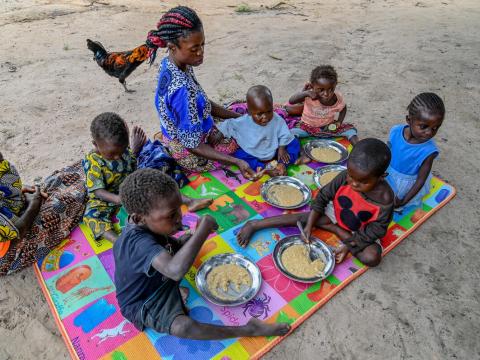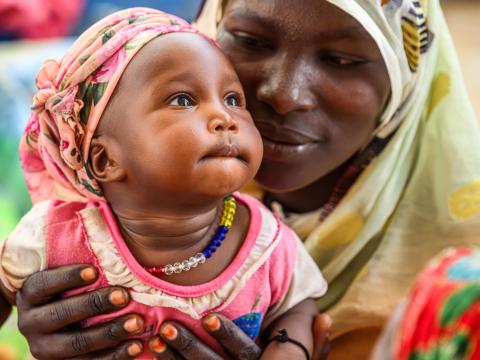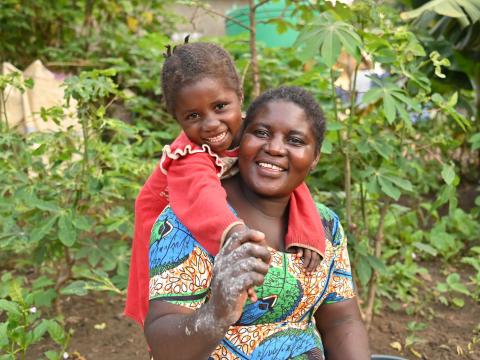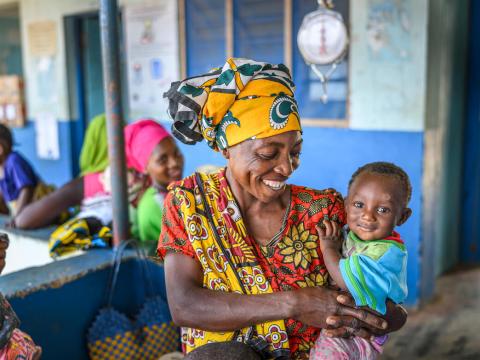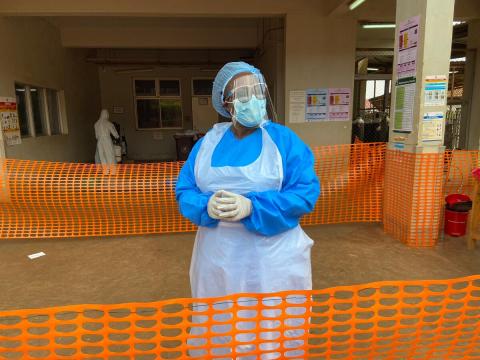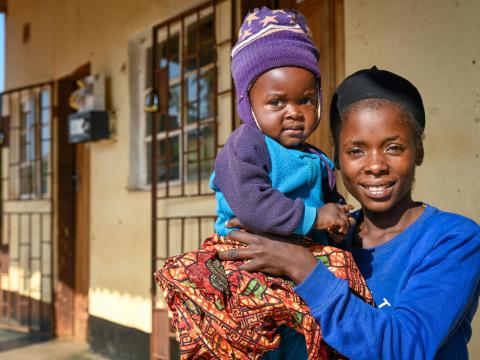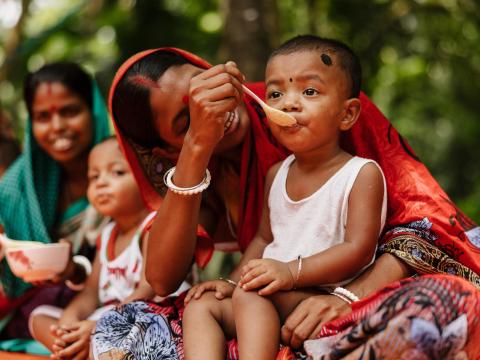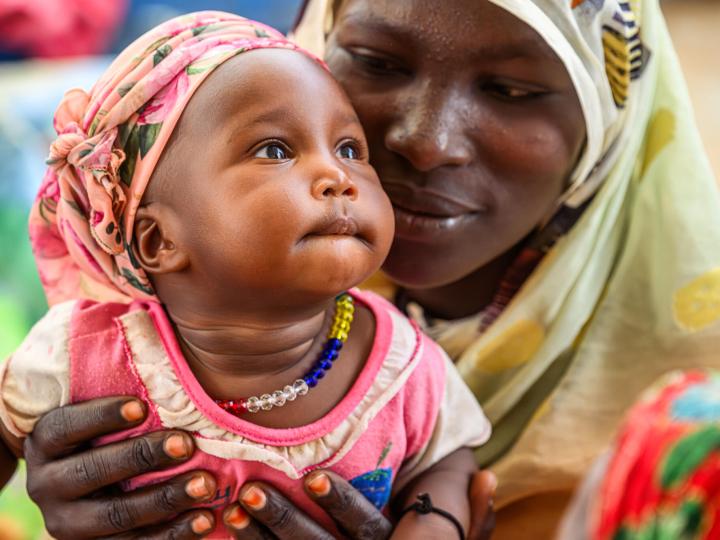
World Vision at the World Health Assembly
The 78th World Health Assembly will take place in Geneva, Switzerland from 19 to 27 May 2025, with the theme of One World for Health.
In addition to the side events below, World Vision will sign onto two constituency statements on Universal Health Coverage and Climate Change and Health, as well as making individual statements on five agenda items.
Our Side Events
World Vision's Statements at the World Health Assembly
13.7 Health and care workforce. Resolution proposed: Accelerating action on the global health and care workforce by 2030
World Vision International is a leading civil society organisation supporting Member States to strengthen their community health workforces to transform health and nutrition outcomes. Community health workers are among the most cost-effective solutions to address the critical gap of nearly 10 million healthcare workers in low- and middle-income countries. Investing in CHWs is one of the best investments a Health Ministry can make, with a 10 to 1 return on investment that, in addition to improving health and nutrition outcomes, also reduces the stress on tertiary care facilities and provides employment opportunities for women and youth. World Vision calls on Member States to prioritise scaling up whole-country coverage of formalised community health workers who are remunerated, trained, supervised, and protected, as a fundamental cornerstone of primary health care and universal health coverage.
13.9 Global Strategy for Women’s Children’s and Adolescents’ Health. Resolution proposed: Regulating the digital marketing of breast-milk substitutes
Robust evidence shows that aggressive and unethical digital marketing of breastmilk substitutes targeting mothers undermines breastfeeding and harms child health, nutrition, and human capital development. World Vision International commends the passage of this important resolution to regulate the digital marketing of breastmilk substitutes, helping to close a critical gap in the WHO Guidance on the Marketing of Breastmilk Substitutes, known as ‘The Code.’ We urge Member States to fully implement the Code and establish strong monitoring and enforcement systems. Digital platforms must be held accountable for unethical marketing influences and the related child protection risks. Clear, stringent oversight mechanisms and sustained investment by Member States are essential to safeguard families from commercial exploitation and uphold every child’s right to optimal health and nutrition.
24.2 (Global Nutrition Targets) Review of and update on matters considered by the Executive Board were discussed during the 156th Executive Board meeting in February 2025; Extension of the comprehensive implementation plan on maternal, infant and young child nutrition 2012–2025
World Vision International welcomes the extension of the Global Nutrition Targets to 2030 and has been a leading Non-State Actor in mobilising Member State support for this important resolution since September 2024. We thank the governments of Ireland and Ethiopia for their leadership and partnership in this process. With only 5 countries achieving 4 of the 6 Global Nutrition Targets, all Health Ministries must urgently take ownership of accelerating progress on the operational and outcomes targets by 2030. WHO’s Essential Nutrition Actions can prevent, detect and treat all forms of malnutrition through the health system, while contributing to Universal Health Coverage. Member States must take immediate action to prioritise and sustainably finance the comprehensive implementation of the Essential Nutrition Actions to realise the right to nutrition for all.
13.2 Mental health and social connection. Decision proposed: A dedicated report on mental health for WHO Governing Bodies. Draft decision proposed: Fostering social connection for global health (under consultation)
World Vision is deeply committed to advancing global mental health, and we wholeheartedly support the initiative to produce a dedicated report on mental health for WHO Governing Bodies. We believe that integrating robust, evidence-based mental health and psychosocial support strategies into global health policies is essential for addressing today’s challenges. The proposal to foster social connection for global health resonates with our experience—strong, resilient communities are better equipped to overcome adversity. Through our innovative programming and research, we have seen firsthand that building social bonds can reduce the risk of mental health challenges by up to 40%. World Vision stands ready to collaborate with global partners to ensure that mental health is prioritised as a critical component of sustainable development and community well-being.
17.5 Poliomyelitis (review of and update on matter considered by Executive Board)
World Vision urges greater attention to cross-border and inaccessible areas in Africa to achieve global polio eradication. Strengthening the role of communities and civil society organisations—including community volunteers—is vital to improving surveillance, enhancing campaign quality, and promoting education on polio prevention, hygiene, and sanitation. In 2024, World Vision, in partnership with international and local organisations, supported the vaccination of 5 million children in 11 countries and trained over 30,000 people to strengthen vaccine delivery and communication. Our efforts focused on last-mile delivery in remote, mobile, and conflict-affected areas, integrating immunisation with broader health services and increasing cross-border collaboration. World Vision calls on Member States to prioritise inclusive, community-based strategies to reach every child and end polio for good.
